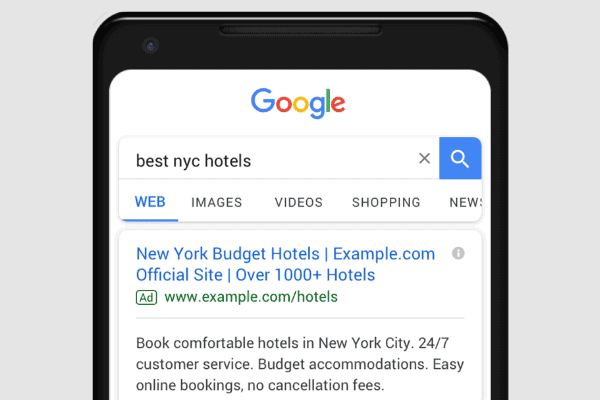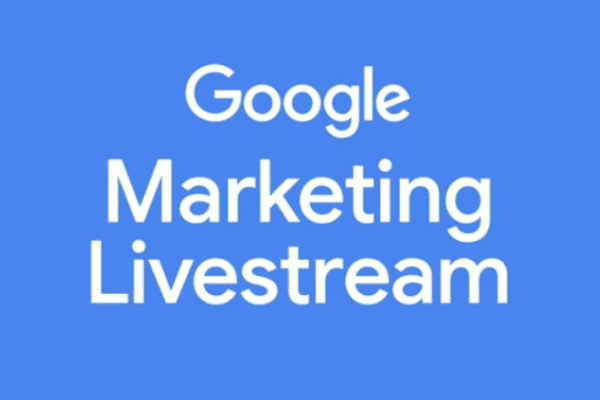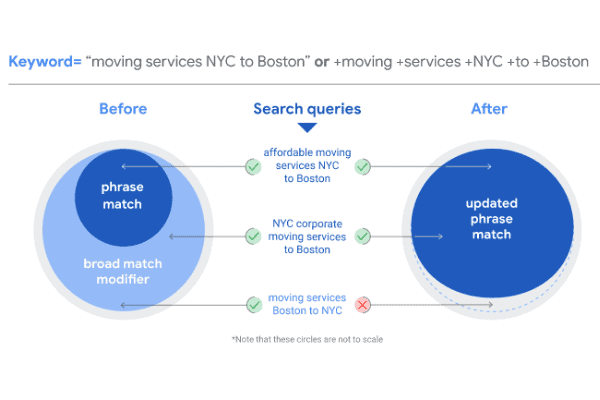Wesley Parker is the Managing Director of Clicteq, a London-based fast growth paid search management agency. In today’s interview, we ask him about various topics currently on his mind including in-housing, the growing, role of automation in marketing, and Google Ads scripts.
You run an agency. What are the three most important traits you look for in recruiting prospects beyond marketing experience?
 Culture fit is really important for us here at Clicteq. When hiring we spend a lot of time trying to find people who closely share our values of Honesty & Integrity, Approachability, Innovation, Collaboration, and Excellence.
Culture fit is really important for us here at Clicteq. When hiring we spend a lot of time trying to find people who closely share our values of Honesty & Integrity, Approachability, Innovation, Collaboration, and Excellence.
We also look for people who are bought into our long term vision for the company. If people are not bought into where we’re going and don’t find what we are doing exciting, then the chances are they are going to get despondent and leave so this is really important to us.
Finally, we tend to look for people who are determined to come first. One of the best pieces of advice I’ve ever read was from the founder of Conversion Rate Experts, Karl Blanks, who said that being first is underrated, as the leader in any market takes a disproportionate amount of the market and profits compared to those who come second.
What are a few of the biggest concerns any marketer considering moving ad operations in-house should consider? And what’s your advice?
At the moment, everybody is talking about in-housing but I still feel that most brands don’t fully take into consideration the true cost of in-housing, the level of control and transparency they could get with an agency, or the difficulty in finding and retaining the best people to run their accounts.
When it comes to in-hosing it isn’t just the salary of the new performance marketing managers that they’ve got to pay, there is everything else that goes with it. Then, they have to consider the share of the overhead (recruitment, office space, taxes, training, etc) which most businesses assume to be around half of the salary again.
You also have to build a technology stack for them to use. If you’re running a sizeable account you will probably want to use a bid management platform like Skai but will likely be using additional tools for reporting, split testing and building campaigns at scale.
Furthermore, brands are adopting more of a hybrid approach where they still retain an agency to provide strategy, consulting, auditing and custom technology.
Before taking things in-house, it’s important to fully explore all costs and build a model to determine if it will be cost-effective.
When it comes to transparency and control, I can certainly see why brands have opted to move in-house. Coming from a legal background and seeing what some media buying agencies were doing with rebates and the amount of ad fraud in the supply chain I sometimes wonder how more people are not in jail. Especially considering that Ebiquity estimated that as much as 60% of programmatic spend is wasted, which would be hundreds of millions of dollars per year for some of the biggest advertisers.
But it’s not all doom and gloom, there is now a new breed of agencies focusing on media transparency and giving brands full control over their own data, which may provide a simpler alternative to moving operations in-house.
Finally and most importantly is finding and retaining the best talent to run your in-house team when you’re competing against agencies.
One of the biggest issues that I hear from in-house marketers is that it is great working in-house for a few months, but when you’re running the same account month after month, it quickly becomes mundane and they start to look to move on. Considering the fairly high turnover rate in digital advertising, I would strongly urge CMOs not to move things in-house unless they are planning on building a small team, of say 3-4 people, this is generally where I’ve seen brands succeed the most.
I’m seeing more and more brands trying to move things in-house with just one person. It works great for 6 – 12 months, then they up sticks and move on and you’re back to square one – with gaps in management and huge time and cost losses in replacing them.

What should be the role of automation in marketing? How much control over our campaigns should we give to computers and what becomes the new role of marketers and agencies in the age of machine learning & AI?
I think the role of automation in marketing is quite simple. It should do what machines do better than humans, namely analysing trends in sets of data through things like n-gram analysis, crunching numbers and doing repetitive tasks that don’t require any cognition.
Machines are in essence, only as good as the people who have programmed them.
When taking into consideration how much control we should give machines I think it’s important to think about the potential areas for failure and ensure that there are the correct fail-safes built into the programs to minimise any negative impact.
Things like bidding—provided that there are hard upper limits around what can be bid—can be fully automated with little risk.
On the contrasting end, we use automation to expand for search query reports, creating new ads and keywords programmatically based on the best performing search terms.
Here there is scope for things like competitor brand terms to be included within your ad copy if they were included in the search term, which is likely to get our clients into hot water.
So we build a double step set of authentications, firstly the program would make a lookup to ensure the ad does not contain a competitors name. Then secondly we would manually approve every ad to ensure brand safety before it goes live.
Considering these two examples, when thinking about how much control computers should have you, I think you should firstly consider the severity of the potential consequences of if things go wrong and then build in suitable safeguards to minimise the potential consequences until you feel comfortable with the program running by itself.
Thinking about the agency of the future, I think in the next decade there will be a move towards agencies being more likely strategy consultants than advertising agencies executing campaigns. Providing strategic advice around audiences, creative, competitive strategy as well as cross channel attribution.
I also think that you will find agencies bolstering their technology arms and building their own solutions that integrate with Google using either Google Ads Scripts or the Google Ads API to help clients automate tasks.
You have written several articles on Google Ads scripts. How do you articulate their value to a search marketer who hasn’t yet utilized them? How should they get started?
Firstly, Google Ads Scripts are a great way to automate the boring mundane tasks that search marketers do on a day to day basis, so they will free up your time and make your life more fun.
If you’re doing something over and over, the chances are that you can write a Google Ads Script to do it for you in a fraction of the time and with less human error.
Secondly, they are a great way to utilise first or third-party datasets within your Google Ads campaigns to bid more effectively and make your marketing budget go further.
As an example, we had a client selling high-end security products and had a target market of people who owned properties with a value of £1mil+, they also saw a spike in sales when there was a burglary nearby.
So we used Google Ads scripts to bid based on house prices by taking postcode level house price data from the property search site Zoopla, so we could bid up in wealthy postcodes. We also pulled data for crime rates from a 3rd party database and used the logic that if there had been an increase in burglaries in the postcode district over the last month we would increase bids.
Getting started with Google ads scripts is fairly easy and doesn’t require any coding experience as there are already a large number of pre-written scripts available online that you can simply configure and then copy and paste into your account.






